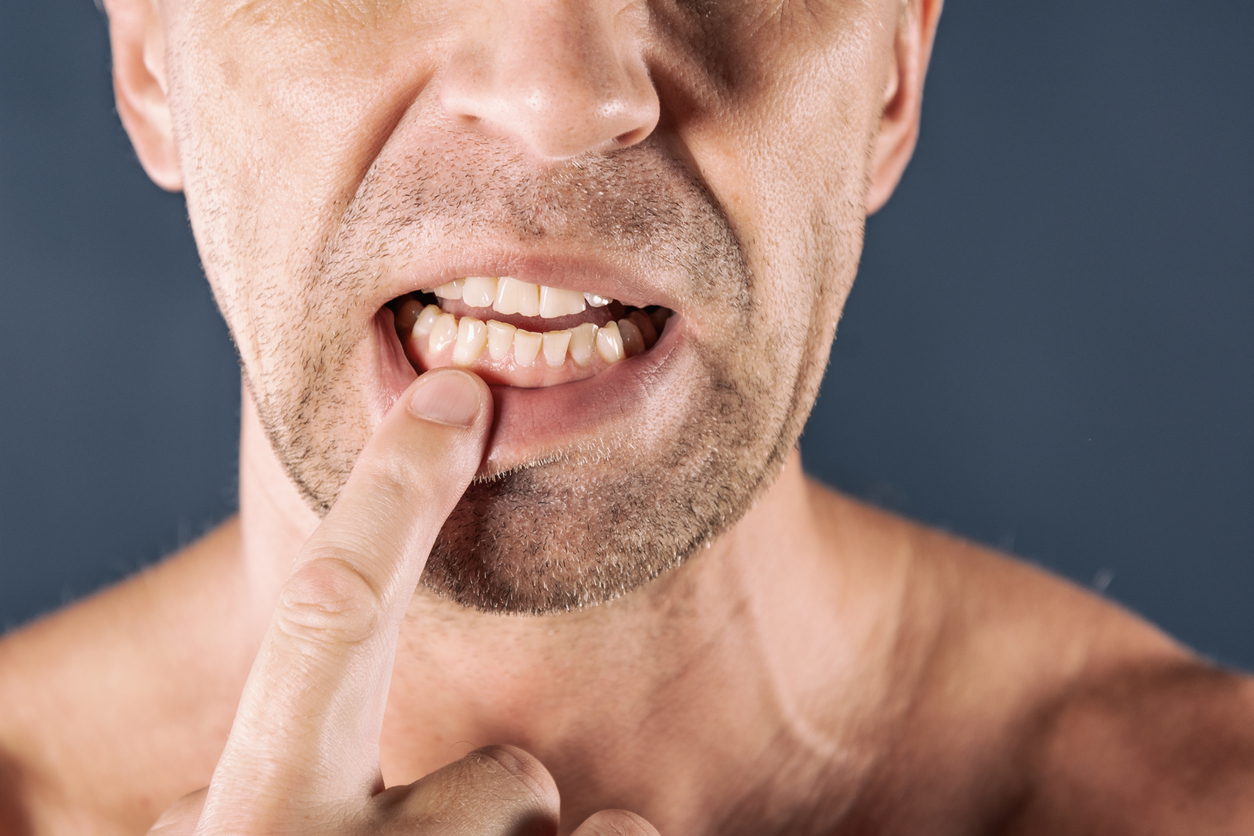On average, half of American adults suffer from periodontal disease, also known as gum disease. Anyone who has had a toothache can tell you how annoying a problem in your mouth can be. But periodontal disease isn’t just a toothache; it’s much, much worse. Unless you understand the severity of periodontal disease, you may put off a dentist visit until it’s too late. OC Dental Specialists has highly-trained specialists that can identify and treat your symptoms of gum disease. To learn more about preventing gum disease, contact the OC Dental Specialist today!
Types of Periodontal Diseases
There are two types of periodontal disease according to the American Academy of Periodontology. The first is called gingivitis, and it is the more mild form of the two. Those who suffer from gingivitis may have some discomfort in the gum region. It is usually the result of an improper or infrequent dental hygiene treatment at home, although some other medical conditions can cause it as well. Many people forget to brush and floss regularly, which is why so many people suffer from gingivitis. Luckily, the remedy to this problem is quite simple. An increase in the frequency of at-home dental care can gradually remove the disease.
The second type of periodontal disease is periodontitis. If gingivitis is left untreated, periodontitis is the next step for the disease. The plaque that causes gingivitis can become worse over time, and ultimately affect the teeth rather than just irritating the gums. The bone within the gum, the root of your tooth, slowly decays and cannot be saved.
Symptoms of Gum Disease
Whether it’s gingivitis or periodontitis, the symptoms can sometimes be similar. Here are some symptoms of gum disease.
- Swollen, puffy, red, or purple gums
- Sensitive gums
- Gums that bleed easily
- Recession in the gum line
There are also symptoms that affect the teeth and mouth as a whole.
- Spaces forming between teeth
- Development of pus
- Teeth becoming loose
- Pain while eating
- Bad breath
If you are experiencing any symptoms of gum disease, be sure to talk with your dentist in Irvine right away.
Consequences of Periodontal Disease
The symptoms may seem like the worse part of periodontal disease, but they are just the beginning. These diseases left untreated can form into a much worse medical problem due to the bacteria that can enter your bloodstream. Here are some of the complications of periodontal disease:
- Loss of teeth. The inconvenience of procedure time and price may be required if the periodontal disease becomes so bad that your natural teeth need to be replaced. Bridges, implants, and dentures are useful in replacing teeth but are never as preferable as natural teeth. Having to replace your teeth comes with its own set of problems, such as inability to eat certain foods, unnatural look, and discomfort.
- Heart disease and heart attack. Periodontal disease can be compartmentalized to just the teeth, but in reality, it affects much more of our body when left untreated. Recent studies show that people who have periodontal disease are over 2 times more likely to suffer a heart attack.
- Diabetes. Because of the bacteria from periodontal disease, blood sugar levels can increase. Surprisingly, some diabetic patients have found less need for insulin when they treat their periodontal disease.
- Respiratory disease. When suffering from periodontal disease, the bacteria involved can be breathed in. This may lead to complications of the respiratory system. Diseases such as pneumonia and bronchitis can be developed, which could have been completely avoidable without periodontal disease.
- Stroke. Similar to how this increases the chances of heart attack, periodontal disease sufferers are three times more likely to have a stroke.
- Pre-term childbirth. Recent studies have also found a link to pregnant women as well. A shocking statistic of women who suffer from periodontal disease is seven to eight times more likely to have a premature birth.
- Contagious. Periodontal disease loves company, and the bacteria can easily be spread from mouth to mouth. By not seeking a dental specialist, your spouse could be at risk for developing problems as well.
Treatment for periodontal disease is so simple, there’s no reason to put it off. Professional treatment is all it takes to rid the plaque and bacteria that cause the diseases.

